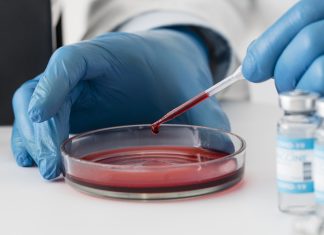A quantum algorithm of generative artificial intelligence (AI) has been developed and successfully tested in Russia for use in chemistry and drug development. This was announced by Aleksey Fedorov, head of the scientific group of the Russian Quantum Center (RQC), Director of the Institute of Physics and Quantum Engineering at MISIS. He said the next task is the search for industrial partners to put these developments into practice, writes TASS.
As Fedorov noted, his team is actively exploring the possibilities of using quantum computing in various industries, including the nuclear power generation, the oil and gas, and the financial sector. Significant results have already been achieved in biotechnology, including the creation of an algorithm for generative AI that can accelerate the development of new drugs.
Identifying promising areas for the use of quantum computers requires close cooperation with businesses that can assess the advantages of new technologies over traditional methods. He considers the search for potential applications of quantum computers to be the most important direction.
“Feedback from the industry is especially important here to assess the potential of quantum solutions and their advantages over existing technologies. To make quantum technologies useful for practical tasks, it is necessary to continue to increase their power and work on algorithms,” said Fedorov.
Since 2020, Rosatom has been responsible for the implementation of the Quantum Computing roadmap. The total amount of financing for the roadmap for 2020-2024 amounted to 24 billion rubles, of which 12 billion rubles were invested by the state corporation. In 2024, the holding announced a new development by Russian scientists: a 20-qubit quantum computer. In the same year, as part of the roadmap, an even more powerful ion-based 50-qubit computer appeared in the country, created by scientists from the Lebedev Physics Institute of the Russian Academy of Sciences and the RQC.




